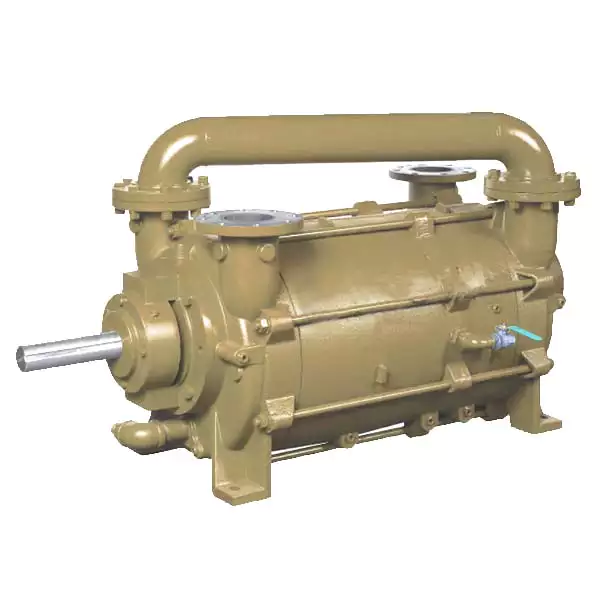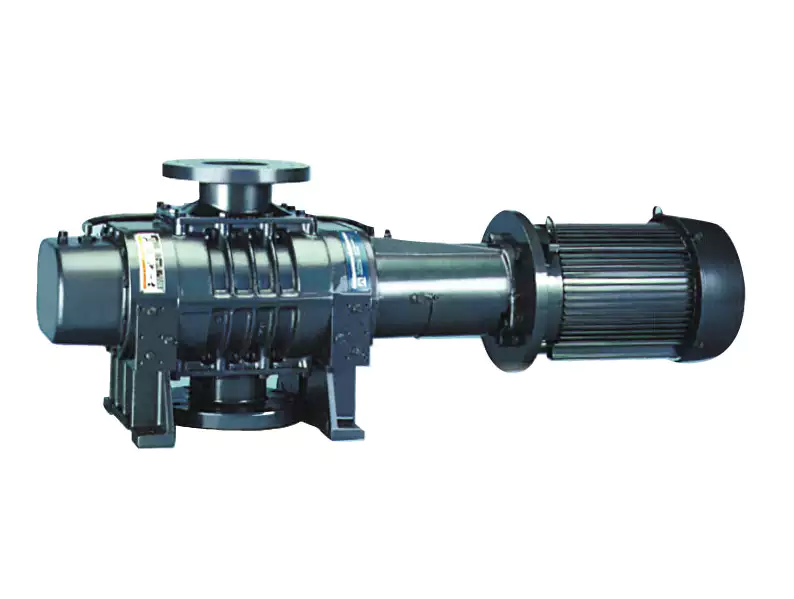产品说明
SPARE PARTS FOR VARIOUS EQUIPMENT MODELS :
Easytrade (HangZhou) Mechanical Co., Ltd. is located in HangZhou, China. It is a wholesaler of construction machinery parts and also an overseas distributor of XGMA.
The company provides spare parts suitable for after-sales maintenance of excavators, wheel loaders, bulldozers, generator sets, dump trucks and other construction machinery, including engine parts, electrical parts, hydraulic parts, repair kits and so on.The main brands it deals with are XGMA, SHANGCHAI, YUCHAI, and it can also provide LIUGONG, LONGKING, SINOTRUK, SDEC, DCEC, DOOSAN,and other brands.
Our company has a long and close relationship with major OEMs and can provide customized products for users and provide professional services for traders to purchase products from major domestic OEMs.
The company has sufficient stock and close cooperation with factories to ensure that customers’ needs are met in a timely manner. The company’s team has rich professional experience and can provide professional and considerate services to users.
Our Warehouse
Packaging and shipment
Q&A
Q1:What are your payment terms?
A1:T/T 30% as deposit and 70% before delivery. We will show you photos of the products and packaging before you pay the balance.
Q2:What is your delivery time?
A2:Generally speaking, it takes 7 days for air orders and 20 to 30 days for sea orders after we receive your prepayment. The exact delivery time depends on the items and quantity you order.
Q3:Do you have MOQ?
A3:For general parts, we don’t have MOQ, 1 piece can be sold, but for some parts, such as bearings, pistons, we may have MOQ, such as 6 pieces, 12 pieces, but if there is MOQ for special parts, we will inform.
Q4:How can I contact you?
A4:You can send your inquiry to us directly, or you can contact us by email, phone or WeChat. We will reply to you as soon as possible.
Q5:How do you keep our business in good relationship for a long time?
A5:1. We maintain good quality and competitive prices to ensure our customers benefit.
2. We respect every customer and treat them as our friends, we sincerely do business and make friends with them no matter what.
| 类型 | Wheel Load |
|---|---|
| Application: | Wheel Load |
| Condition: | New |
| Transport Package: | Carton, Wooden Case or Pallet |
| Specification: | 403600 |
| Trademark: | XGMA |

如何维护真空泵并排除故障?
真空泵的维护和故障排除对于确保其最佳性能和使用寿命至关重要。以下是详细说明:
真空泵的维护:
1.定期检查:定期对泵进行目视检查,检查是否有任何损坏、泄漏或异常磨损的迹象。检查电机、皮带、联轴器和其他组件是否正确对齐和处于正常状态。
2.润滑:遵循制造商的润滑指南。某些真空泵需要定期换油或润滑活动部件。确保使用正确类型和数量的润滑油。
3.油位检查:监控油封泵的油位,并将其保持在建议范围内。必要时按照制造商的说明添加或更换机油。
4.过滤器维护:定期清洁或更换过滤器,以防止堵塞并确保气流正常。过滤器堵塞会影响泵的性能并增加能耗。
5.冷却系统:如果真空泵有冷却系统,则应定期检查其清洁度和功能是否正常。根据需要清洁或更换冷却部件,以防止过热。
6.密封件和垫圈:检查密封件和垫圈是否有磨损或泄漏迹象。及时更换任何损坏或磨损的密封件,以保持气密性。
7.阀门维护:如果真空泵包括阀门,请定期检查和清洁,以确保正常运行并防止堵塞。
8.振动和噪音:监测泵是否有过度振动或异常噪音,这可能表明存在偏差、轴承磨损或其他机械问题。及时处理这些问题,防止进一步损坏。
排除真空泵问题:
1.真空度不足:如果泵未达到所需的真空度,请检查系统中是否存在泄漏、密封不当或密封件磨损。检查阀门、连接处和密封件是否泄漏,并根据需要进行修理或更换。
2.性能不佳:如果泵的性能不佳,请检查过滤器是否堵塞、润滑是否不足或部件是否磨损。清洁或更换过滤器,确保适当的润滑,必要时更换磨损的部件。
3.过热:如果泵过热,检查冷却系统是否堵塞或气流不足。清洁或更换冷却部件,并确保泵周围通风良好。
4.噪音或振动过大:噪音或振动过大可能表示对准不准、轴承磨损或其他机械问题。检查并修理或更换损坏或磨损的部件。确保旋转部件的正确对准和平衡。
5.电机问题:如果泵电机无法启动或运行不稳定,请检查电源、电气连接和电机部件。使用适当的电气测试设备测试电机,必要时咨询电工或电机专家。
6.耗油量过大:如果泵的耗油量很大,请检查是否有泄漏或其他可能导致机油损失的问题。检查密封件、垫圈和连接处是否泄漏,并根据需要进行修理。
7.异常气味:异常气味(如烧焦味)可能表示过热或其他机械故障。请及时处理,必要时咨询技术人员。
8.制造商指南:请务必参考制造商针对您的真空泵型号提供的维护和故障排除指南和建议。遵循规定的维护计划,必要时寻求专业协助。
遵循正确的维护程序并及时解决任何故障问题,就能确保真空泵的可靠运行和使用寿命。

What Is the Role of Vacuum Pumps in Pharmaceutical Manufacturing?
Vacuum pumps play a crucial role in various aspects of pharmaceutical manufacturing. Here’s a detailed explanation:
Vacuum pumps are extensively used in pharmaceutical manufacturing processes to support a range of critical operations. Some of the key roles of vacuum pumps in pharmaceutical manufacturing include:
1. Drying and Evaporation: Vacuum pumps are employed in drying and evaporation processes within the pharmaceutical industry. They facilitate the removal of moisture or solvents from pharmaceutical products or intermediates. Vacuum drying chambers or evaporators utilize vacuum pumps to create low-pressure conditions, which lower the boiling points of liquids, allowing them to evaporate at lower temperatures. By applying vacuum, moisture or solvents can be efficiently removed from substances such as active pharmaceutical ingredients (APIs), granules, powders, or coatings, ensuring the desired product quality and stability.
2. Filtration and Filtrate Recovery: Vacuum pumps are used in filtration processes for the separation of solid-liquid mixtures. Vacuum filtration systems typically employ a filter medium, such as filter paper or membranes, to retain solids while allowing the liquid portion to pass through. By applying vacuum to the filtration apparatus, the liquid is drawn through the filter medium, leaving behind the solids. Vacuum pumps facilitate efficient filtration, speeding up the process and improving product quality. Additionally, vacuum pumps can aid in filtrate recovery by collecting and transferring the filtrate for further processing or reuse.
3. Distillation and Purification: Vacuum pumps are essential in distillation and purification processes within the pharmaceutical industry. Distillation involves the separation of liquid mixtures based on their different boiling points. By creating a vacuum environment, vacuum pumps lower the boiling points of the components, allowing them to vaporize and separate more easily. This enables efficient separation and purification of pharmaceutical compounds, including the removal of impurities or the isolation of specific components. Vacuum pumps are utilized in various distillation setups, such as rotary evaporators or thin film evaporators, to achieve precise control over the distillation conditions.
4. Freeze Drying (Lyophilization): Vacuum pumps are integral to the freeze drying process, also known as lyophilization. Lyophilization is a dehydration technique that involves the removal of water or solvents from pharmaceutical products while preserving their structure and integrity. Vacuum pumps create a low-pressure environment in freeze drying chambers, allowing the frozen product to undergo sublimation. During sublimation, the frozen water or solvent directly transitions from the solid phase to the vapor phase, bypassing the liquid phase. Vacuum pumps facilitate efficient and controlled sublimation, leading to the production of stable, shelf-stable pharmaceutical products with extended shelf life.
5. Tablet and Capsule Manufacturing: Vacuum pumps are utilized in tablet and capsule manufacturing processes. They are involved in the creation of vacuum within tablet presses or capsule filling machines. By applying vacuum, the air is removed from the die cavity or capsule cavity, allowing for the precise filling of powders or granules. Vacuum pumps contribute to the production of uniform and well-formed tablets or capsules by ensuring accurate dosing and minimizing air entrapment, which can affect the final product quality.
6. Sterilization and Decontamination: Vacuum pumps are employed in sterilization and decontamination processes within the pharmaceutical industry. Autoclaves and sterilizers utilize vacuum pumps to create a vacuum environment before introducing steam or chemical sterilants. By removing air or gases from the chamber, vacuum pumps assist in achieving effective sterilization or decontamination by enhancing the penetration and distribution of sterilants. Vacuum pumps also aid in the removal of sterilants and residues after the sterilization process is complete.
It’s important to note that different types of vacuum pumps, such as rotary vane pumps, dry screw pumps, or liquid ring pumps, may be utilized in pharmaceutical manufacturing depending on the specific requirements of the process and the compatibility with pharmaceutical products.
In summary, vacuum pumps play a vital role in various stages of pharmaceutical manufacturing, including drying and evaporation, filtration and filtrate recovery, distillation and purification, freeze drying (lyophilization), tablet and capsule manufacturing, as well as sterilization and decontamination. By enabling efficient and controlled processes, vacuum pumps contribute to the production of high-quality pharmaceutical products, ensuring the desired characteristics, stability, and safety.

Can Vacuum Pumps Be Used in the Medical Field?
Yes, vacuum pumps have a wide range of applications in the medical field. Here’s a detailed explanation:
Vacuum pumps play a crucial role in various medical applications, providing suction or creating controlled vacuum environments. Here are some key areas where vacuum pumps are used in the medical field:
1. Negative Pressure Wound Therapy (NPWT):
Vacuum pumps are extensively utilized in negative pressure wound therapy, a technique used to promote wound healing. In NPWT, a vacuum pump creates a controlled low-pressure environment within a wound dressing, facilitating the removal of excess fluid, promoting blood flow, and accelerating the healing process.
2. Surgical Suction:
Vacuum pumps are an integral part of surgical suction systems. They provide the necessary suction force to remove fluids, gases, or debris from the surgical site during procedures. Surgical suction helps maintain a clear field of view for surgeons, enhances tissue visualization, and contributes to a sterile operating environment.
3. Anesthesia:
In anesthesia machines, vacuum pumps are used to create suction for various purposes:
– Airway Suction: Vacuum pumps assist in airway suctioning to clear secretions or obstructions from the patient’s airway during anesthesia or emergency situations.
– Evacuation of Gases: Vacuum pumps aid in removing exhaled gases from the patient’s breathing circuit, ensuring the delivery of fresh gas mixtures and maintaining appropriate anesthesia levels.
4. Laboratory Equipment:
Vacuum pumps are essential components in various medical laboratory equipment:
– Vacuum Ovens: Vacuum pumps are used in vacuum drying ovens, which are utilized for controlled drying or heat treatment of sensitive materials, samples, or laboratory glassware.
– Centrifugal Concentrators: Vacuum pumps are employed in centrifugal concentrators to facilitate the concentration or dehydration of biological samples, such as DNA, proteins, or viruses.
– Freeze Dryers: Vacuum pumps play a vital role in freeze-drying processes, where samples are frozen and then subjected to vacuum conditions to remove water via sublimation, preserving the sample’s structure and integrity.
5. Medical Suction Devices:
Vacuum pumps are utilized in standalone medical suction devices, commonly found in hospitals, clinics, and emergency settings. These devices create suction required for various medical procedures, including:
– Suctioning of Respiratory Secretions: Vacuum pumps assist in removing respiratory secretions or excess fluids from the airways of patients who have difficulty coughing or clearing their airways effectively.
– Thoracic Drainage: Vacuum pumps are used in chest drainage systems to evacuate air or fluid from the pleural cavity, helping in the treatment of conditions such as pneumothorax or pleural effusion.
– Obstetrics and Gynecology: Vacuum pumps are employed in devices used for vacuum-assisted deliveries, such as vacuum extractors, to aid in the safe delivery of babies during childbirth.
6. Blood Collection and Processing:
Vacuum pumps are utilized in blood collection systems and blood processing equipment:
– Blood Collection Tubes: Vacuum pumps are responsible for creating the vacuum inside blood collection tubes, facilitating the collection of blood samples for diagnostic testing.
– Blood Separation and Centrifugation: In blood processing equipment, vacuum pumps assist in the separation of blood components, such as red blood cells, plasma, and platelets, for various medical procedures and treatments.
7. Medical Imaging:
Vacuum pumps are used in certain medical imaging techniques:
– Electron Microscopy: Electron microscopes, including scanning electron microscopes and transmission electron microscopes, require a vacuum environment for high-resolution imaging. Vacuum pumps are employed to maintain the necessary vacuum conditions within the microscope chambers.
These are just a few examples of the wide-ranging applications of vacuum pumps in the medical field. Their ability to create suction and controlled vacuum environments makes them indispensable in medical procedures, wound healing, laboratory processes, anesthesia, and various other medical applications.


editor by CX 2023-11-09